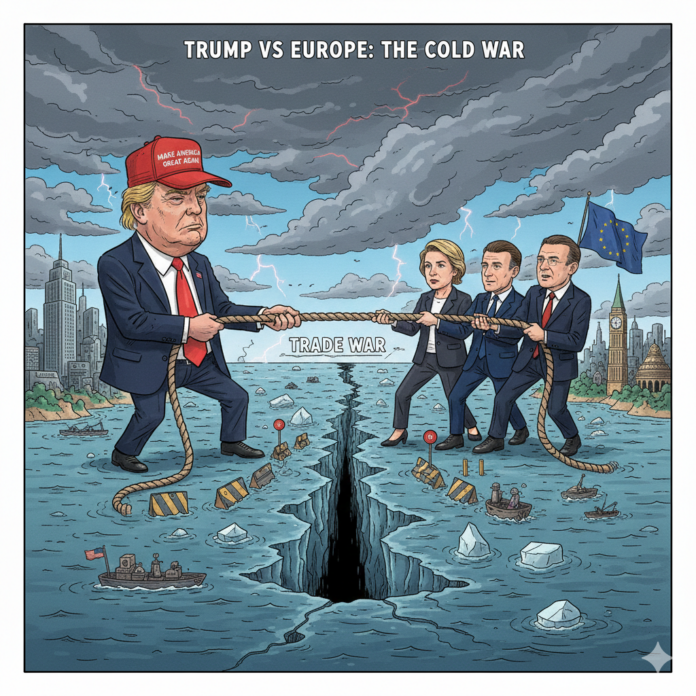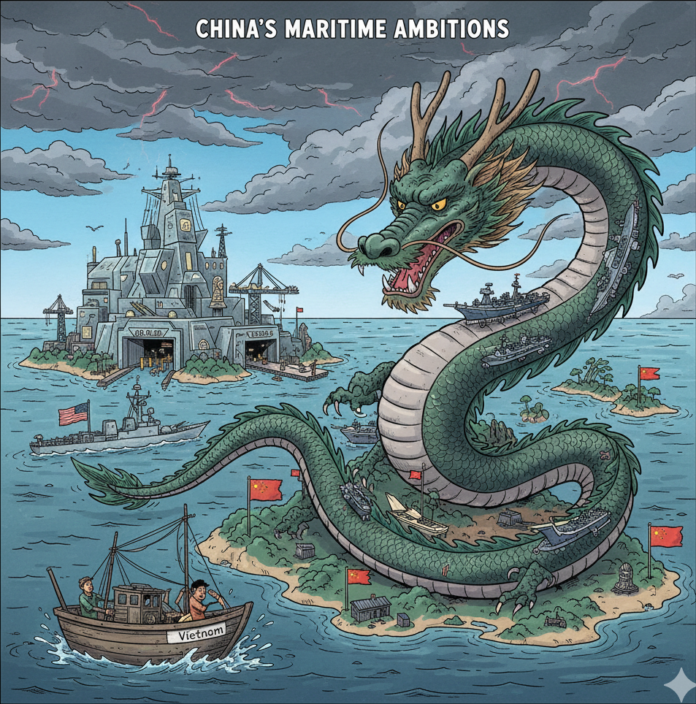“We cannot let our country fall into the hands of the far right,” said Kylian Mbappé at the press conference, as he put on a mask adorned with the colors of France. Perhaps even the Gallic rooster was embroidered on it. This is how he wanted to play, with a broken nose, so that millions of TV viewers could see his national commitment. “I want to proudly wear the French shirt,” he continued, “I don’t want to play for a country that does not represent my values.”
UEFA reprimanded the French football star and only allowed him to wear a neutral-colored protective mask on the field. There is a rule for that, it must be followed! There is also a rule to avoid political agitation, but the authorities could not decide whether Mbappé was agitating or just expressing his private opinion to the cameras, because he has the right to do so. Therefore, even after the first round of elections, he was able to address his compatriots in front of the football public, urging them to vote against the National Rally party, which seeks to divide France, representing similar values.
Mbappé is a global star, with forty million followers on social media, a top influencer. People watch what he eats, drinks, and says. His behavior sets an example and his words inspire action. An intelligent player, he is surely aware that appearing and speaking in public entails responsibility.
Mbappé was born to a Cameroonian father and an Algerian mother, but he is a French footballer. Algeria was French until 1963, and Cameroon was a German colony from the Bismarckian expansion until the end of World War I. The fair peace treaty awarded one part of the country to the English, and the other part to the French. The French continued the same colonial policies in Cameroon as the Germans before them, the African version of forced labor. The colonial world ceased to exist in the 1960s, and the more educated and entrepreneurial indigenous people chose a European life: Mbappé’s ancestors embraced French culture. Thus, the golden-footed boy born near Paris became a true Frenchman. His new French identity is evident in him, just as it is in the entire national team. With hands on their hearts, they sing the Marseillaise enthusiastically, but what do they think when they reach the lines “March on, citizens, Form your battalions, Let impure blood Water our furrows”?
Forty percent of France’s 68 million inhabitants are immigrants, yet according to official statistics, the French make up 84 percent of the population. The Mbappé family’s fate helps decipher this contradiction, as anyone who is a French citizen is considered French regardless of skin color, religion, or culture. They do not enrich the ranks of the National Rally party. Instead, they are people instead of the nation, represented – or at least they think – by the new left-wing people’s front, which sounds suspicious to our Hungarian ears. The arrogant French and Germans could listen to Hungarian historical experiences, which have been encapsulated in a proverb: “Give the Slovak lodgings and he will kick you out of the house!”
The post-World War I partition of territories also comes to my mind. In 1500, there were only a hundred thousand Romanians living in Transylvania, but by 1918 there were already three million. Due to centuries-long continuous migration, settlement, and movement, more than half of Transylvania’s population became Romanian. In Gyulafehérvár on December 1, 1918, the unanimous decision of the Transylvanian Romanian delegates was that Transylvania would now enrich Greater Romania’s territory. Unanimously, as the indigenous Hungarian Transylvanians were not consulted. The Transylvanian Saxons were consulted, and they chose Romania. As Romanian citizens, they immediately bid farewell to the privileges given to them by Hungarian King Andrew II in 1224, privileges that no Hungarian king or prince had ever disturbed. At the instruction of the Hungarian government, Hungarian State Railways provided free special trains for Romanians to reach the venue of the Gyulafehérvár event, because the nationalities living in the Kingdom of Hungary were entitled to the right of democratic self-determination.
In France, the people’s front mobilization paid off. Although in the first round of elections – except for Paris – all of Gaul swam in national dark blue, this order was disrupted in the second round, the country became colorful, the party with a varied background won, and even dragged Macron’s renaissance along with them. Ten million French-French citizens voted for the National Rally, and the newcomers – perhaps listening to Mbappé’s call – sided with the “people’s front” representing their interests. They were only seven million, but the democratic French electoral system awarded them thirty-seven more seats than the National Rally, classified as far-right.
Between the two rounds of elections, the French public prosecutor’s office launched an investigation against Marine Le Pen. The neutral prosecution now believes that the party leader likely exceeded the campaign expenditure allowed by law for the 2022 presidential election. She is not the only one, but she was randomly selected, of course. She is also accused of misappropriation of European Union funds, as the party’s European Parliament assistants were not paid properly. If the allegations are proven, Le Pen could face up to ten years in prison and be barred from running for president again. The French rule of law may have been concerned because recent public opinion polls indicate that Le Pen may have a good chance of running in the presidential election in two years and could achieve a result of over fifty percent in the first round. And then the colored French popular world could turn nationalist again.
For now, the varied colored people’s front mobilizes against the “far right” with fearmongering tactics. The question is, when will the immigrants of the new French background, who currently make up forty percent, get tired of this and decide to take control of their fate, and instead of the people’s front, assert their own interests on their own behalf.
The author is a historian
Rab Irén




